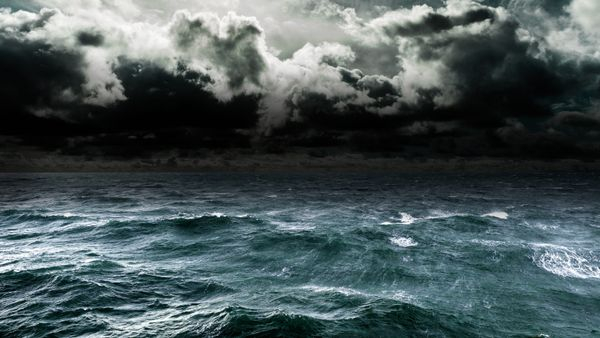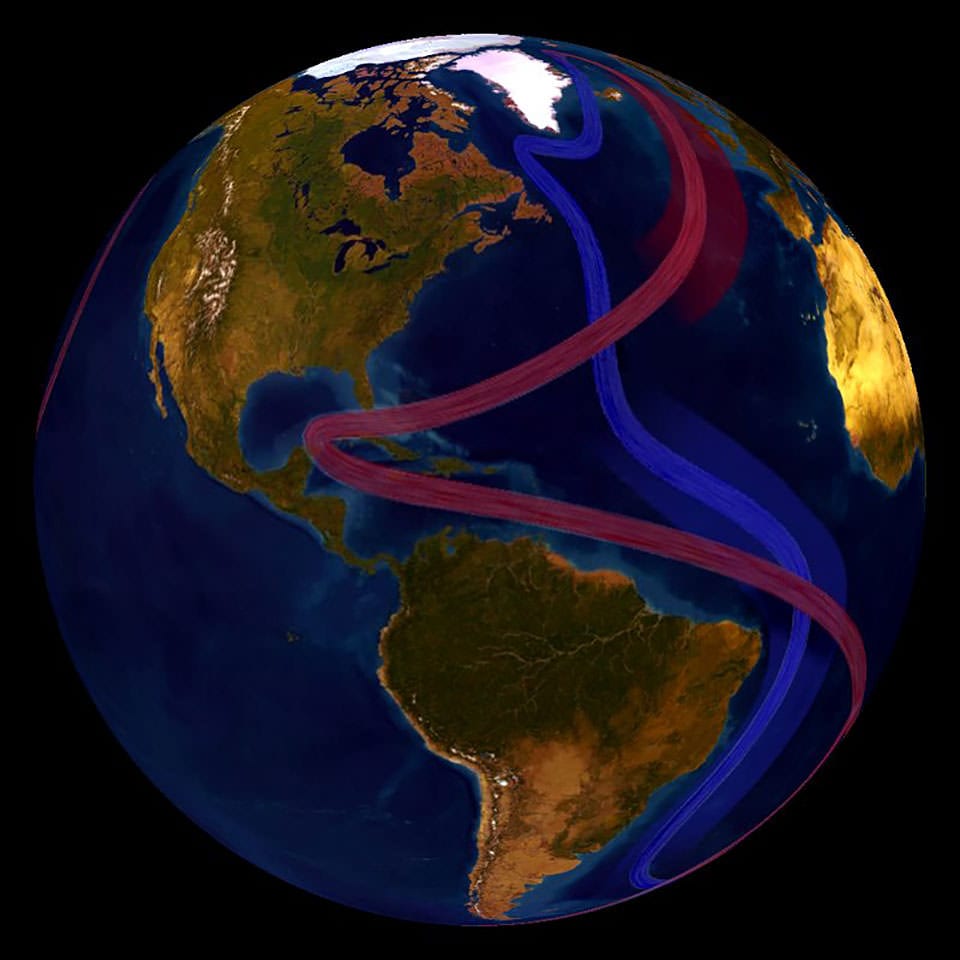'We are approaching the tipping point': Marker for the collapse of key Atlantic current discovered
A vital Atlantic current that includes the Gulf Stream and keeps our climate in check may be giving off a warning sign of collapse.

Scientists have discovered a key warning sign before a crucial Atlantic current collapses and plunges the Northern Hemisphere into climate chaos.
The Atlantic Meridional Overturning Circulation (AMOC) carries warm water north from the Southern Hemisphere, where it releases heat and freezes. The freezing process concentrates salt in the non-frozen portion of the ocean water; this extra-saline water sinks, travels back south and picks up heat again, restarting the conveyor belt. (The Gulf Stream is part of this belt.)
This release of heat helps keep Europe, and to some extent North America, balmier than it otherwise would be. But sediment records over the past 100,000 years suggest that, at times, the AMOC has shut down abruptly, leading to major climate shifts over mere decades.
Related: SpaceX launches NASA's PACE satellite to study Earth's oceans, air and climate (video)
Scientists believe we could be veering towards this scenario once again — potentially as early as 2025 — as a result of climate change. However, until now researchers had no way of telling if the current is on the path toward one of these tipping points.
In a new study, published today (Feb. 9) in the journal Science Advances, scientists found that the flow of fresh water into the Atlantic Ocean at a latitude of 34 degrees south (the latitude where South Africa sits) may indicate a key warning sign for an impending AMOC collapse. The team found that about 25 years before the AMOC collapses, this flow reaches a minimum).
Scientists don't have a long enough record of observations of freshwater flow at this spot to predict how far away the AMOC is from a tipping point right now. However, they do know that this flow has been declining.
Breaking space news, the latest updates on rocket launches, skywatching events and more!
Related: Controversial climate change study claims we'll breach 2 C before 2030
"We are approaching the tipping point, but we cannot deduce the distance to the tipping point," study first author René M. van Westen, a postdoctoral researcher in marine and atmospheric science at Utrecht University, told Live Science.
Because the rising and sinking of the AMOC depends on the salinity of the water, this circulation is very sensitive to influxes of fresh water, van Westen said. As the climate warms and precipitation patterns change, the patterns of freshwater flow into the ocean change, too.
It's difficult to predict the outcomes, though, and finding the AMOC's tipping point requires simulating a gradual increase in freshwater flow in the northern Atlantic over more than 2,000 years, van Westen said. This is a long and computationally expensive process, but trying to cut corners by simulating large freshwater pulses is not as realistic or precise.
The researchers modeled this gradual freshwater increase using state-of-the-art climate models. They found a long negative trend in freshwater flow at 34 degrees south — the southern border of the Atlantic Ocean — reaching a minimum about 25 years before the AMOC collapses. The minimum is not tied to a specific salinity value, but rather is relative to the patterns that came before, so researchers aren't sure how these conditions compare to today's. The AMOC collapse led to a complete lack of circulation and a loss of about 75% of the heat transport from south to north.
If the AMOC were to collapse in the near future, the consequences would be dire. Without the AMOC, the Northern Hemisphere would get colder, and the southern hemisphere would get warmer, though by a lesser degree . The effects vary by region, but Europe would be hard hit, van Westen said, cooling between 9 and 18 degrees Fahrenheit (5 to 10 degrees Celsius) within a century. That's a huge swing, even compared with the current level of climate change, which is already having impacts.
"On average, the global climate warms by about 0.2 degrees C [0.36 F] per decade," van Westen said.
The collapse of the AMOC would also lead to changes in precipitation around the globe. For example, the wet and dry seasons in the Amazon rainforest would swap places, leading to major ecological impacts, the researchers wrote in the paper.
"We know under climate change that this AMOC will gradually weaken and this [freshwater] parameter will become more negative, so it will destabilize the AMOC further," van Westen says. The message, he added, is that the need to halt climate change is urgent: "We need to stop emitting as a global society."

Stephanie Pappas is a contributing writer for Space.com sister site Live Science, covering topics ranging from geoscience to archaeology to the human brain and behavior. She was previously a senior writer for Live Science but is now a freelancer based in Denver, Colorado, and regularly contributes to Scientific American and The Monitor, the monthly magazine of the American Psychological Association. Stephanie received a bachelor's degree in psychology from the University of South Carolina and a graduate certificate in science communication from the University of California, Santa Cruz.


